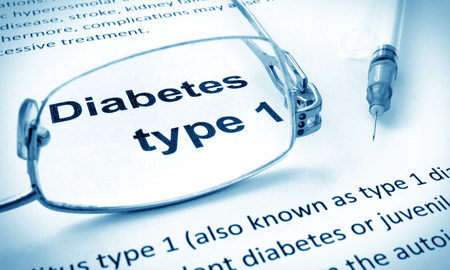Stem Cell Therapy for People with Type 1 Diabetes

Type 1 diabetes is a rare form of diabetes, typically diagnosed during childhood or adolescence. Previously known as juvenile diabetes, it affects only 5 percent of the total number of people with diabetes. In people with type 1 diabetes, the islet beta cells in the pancreas do not produce a sufficient amount of insulin. Insulin is the hormone that regulates the movement of glucose from the bloodstream to the cells of the body where it is needed to provide energy.
Background
Research has shown that infusion of mesenchymal stem cells derived from Wharton’s jelly (WJ-MSCs) is able to restore islet beta-cell function in the pancreas of patients with type 1 diabetes. Wharton’s jelly is the gelatinous insulation material that protects the umbilical cord. Stem cells can be retrieved from umbilical cord blood as well as Wharton’s jelly. It is unclear whether WJ-MSCs can help preserve the function of islet beta cells in the pancreas of patients with type 1 diabetes and previous episodes of diabetic ketoacidosis (a potentially life-threatening complication).
Method
Scientists at Nanjing University Medical School in China conducted a phase 2 trial on patients at Nanjing Drum Tower Hospital. All participants in this open-label study were between 12 and 35 years old with type 1 diabetes with a history of diabetic ketoacidosis in the preceding 12 months.
WJ-MSCs were sourced from the cords of healthy newborn infants. The stem cells were cultured, purified, and infused intravenously into the patients who were monitored at 3, 6, 12, and 24 months post-infusion. Outcomes were measured in terms of adverse effects, insulin dosage, hemoglobin A1c levels, and fasting and peak postprandial C-peptide levels. Each patient was carefully evaluated at each follow-up visit for treatment-related adverse effects such as malignancy, infection, and episodes of hyperglycemia or hypoglycemia. Reduction in insulin dosage by at least 30 percent qualified as a clinical response.
Findings
Of the 17 patients enrolled in the study, two were lost in follow-up and not included in the final study analysis. In the remaining 15 participants, there were no serious treatment-related adverse events or death. Throughout the follow-up period, the concentration of hemoglobin A1c fell in all patients. More than 50 percent of the participants showed a clinical response with a 30 percent or more reduction in the requirement of exogenous insulin, a 30 percent increase in fasting C-peptide (FCP), and a 50 percent increase in peak postprandial C-peptide (PCP). There was no significant difference in the hemoglobin A1c between responders and non-responders to stem cell therapy. However, the exogenous insulin dose of responders fell considerably compared to non-responders. Similarly, responders had higher FCP and PCP compared to non-responders.
Conclusion
For people with type 1 diabetes and a history of diabetic ketoacidosis, infusion with WJ-MSCs is a safe method of preserving islet beta cell function. The efficacy of the therapy is affected by the duration of the disease before infusion.
References:
- http://www.diabetes.org/diabetes-basics/type-1/?referrer=https://www.google.co.in/
- http://www.thelancet.com/journals/landia/article/PIIS2213-8587(16)30372-2/fulltext


